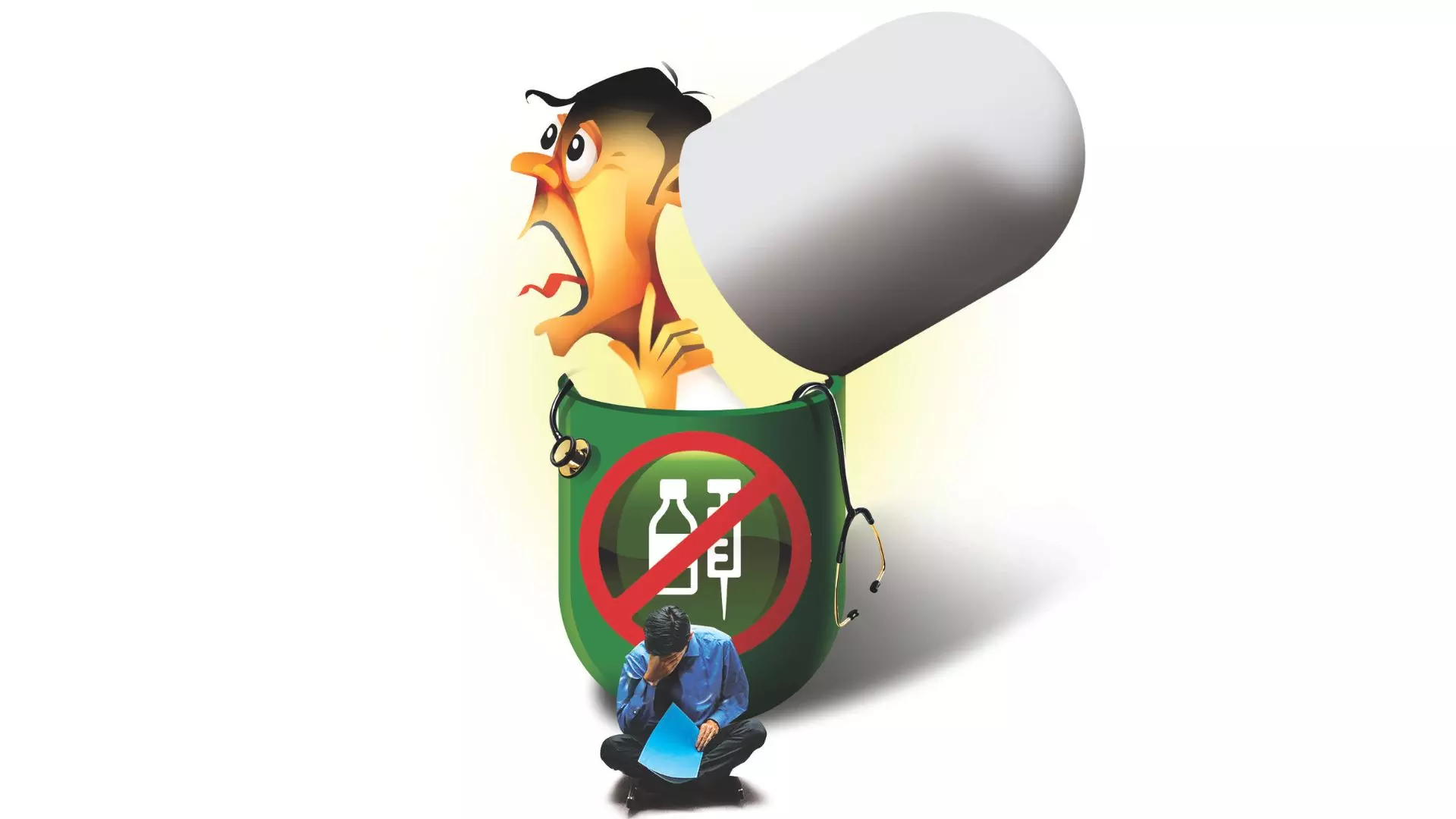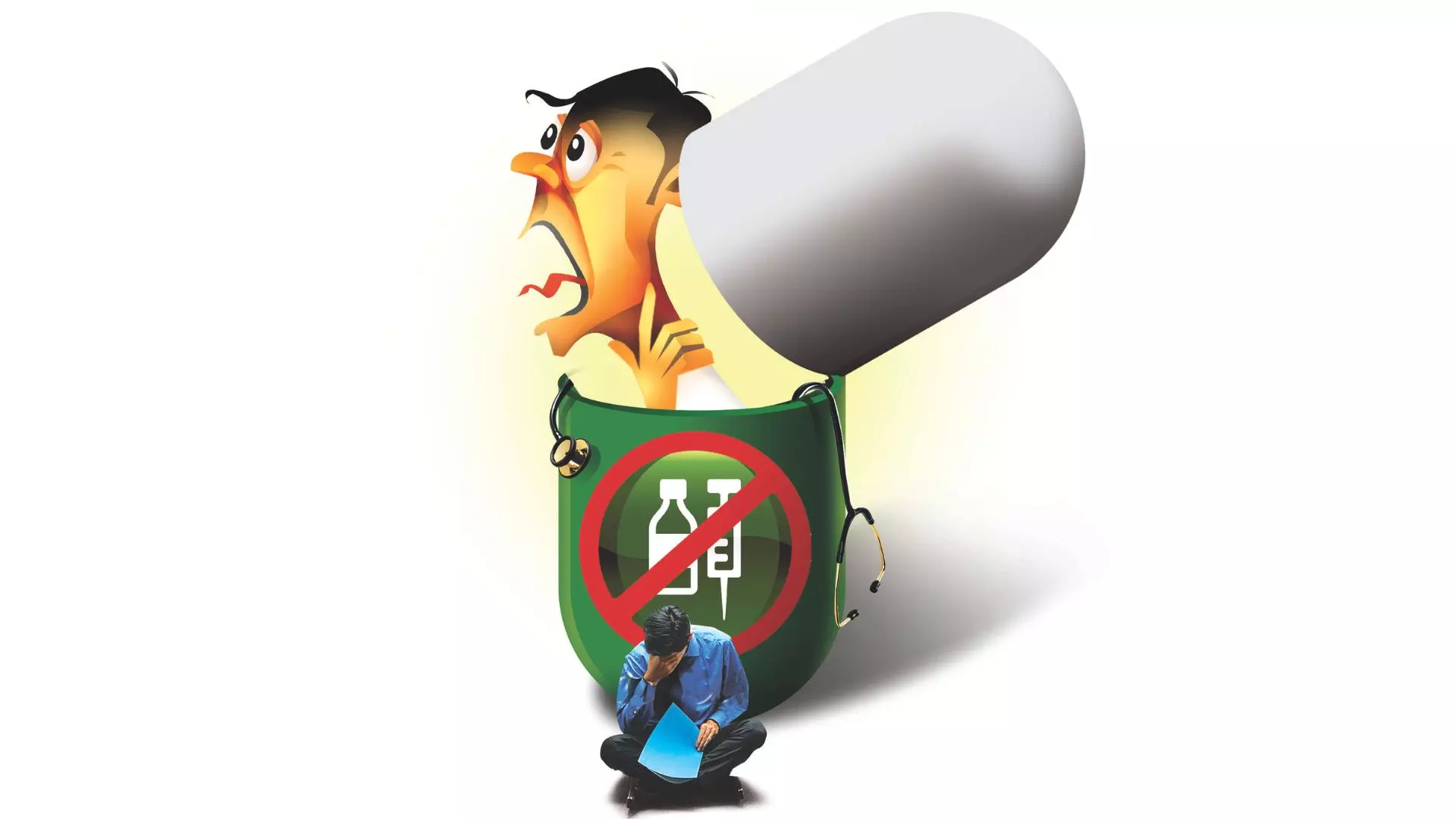
Move over the adulterated Tirupati Laddu row; India is now faced with something more life-threatening. It’s the substandard quality of medicine that most people use daily.
Poor-quality medications are silent killers since they appear to be real. Poor-quality medications prolong sickness, cause side effects, and increase drug resistance, causing more illness and deaths, especially in youngsters.
In its latest monthly medicine warning list, the Central Pharmaceuticals Standards Control Organisation (CDSCO) listed 53 drugs as “Not of Standard Quality (NSQ) Alert,” including paracetamol.
The 53 best-selling pharmaceuticals that failed the drug regulator’s quality assessment include Shelcal, vitamin B complex and vitamin C softgels, antiacid Pan-D, paracetamol tablets IP 500 mg, Glimepiride, Telmisartan, and others.
Saviour Turns Killer
“Many commonly used medicines find a place in this dubious list. Drugs to treat hypertension, diabetes, and asthma, as well as antibiotics, have failed to pass the scrutiny of CDSCO. This is both unfortunate and risky. It has the potential to harm many patients, leading to adverse effects as well as a lack of efficacy,” says Dr Sudhir Kumar, Sr. Consultant Neurologist at Apollo Hospitals.
The “substandard” rating does not mean the drugs are intrinsically harmful, but by being ineffective and failing to treat or control ailments, can be fatal.
“The use of substandard medicines to treat high blood pressure and sugars can lead to poor control, increasing the risk of heart attack. Poor-quality antibiotics can worsen infections, increase the threat of antibiotic resistance, and even kill. There is a need to have stringent measures in place,” says Dr Sudhir.
A Sordid Tale
The Indian government takes great pride in calling India the “Pharmacy of the World”, thanks to its manufacture of generic medicines. But the list of substandard drugs tells a different story. The World Health Organisation (WHO) previously issued an alert against Maiden Pharmaceuticals, a Haryana-based company, for producing cough and cold syrups, accusing them of being “contaminated”.
Experts say that India’s old, flawed, and inadequate regulatory system is to blame for substandard or fake drugs. “Drug manufacturers should undertake frequent inspections of their manufacturing processes and facilities. We should take exemplary punitive actions, such as hefty fines and closure of manufacturing units if we find irregularities or standards not met. We urgently need these measures to protect the health of millions of citizens who could potentially suffer from the consumption of substandard and spurious medicines,” says Dr Sudhir.
Prescribe Safe
There is nothing wrong with the medicines, says Dr Sudhir. “Patients should receive prescriptions for these medications when appropriate. For example, a person with hypertension will need BP-lowering drugs, and a person with diabetes will require anti-diabetic medicines. These medicines are manufactured by pharmaceutical companies,” says Dr Sudhir adding, “The alert reveals that spurious or low-quality brands, comprising only a few batches from 1-2 pharmaceutical companies, exist. After reviewing these alerts, doctors can safely avoid these specific brands and instead prescribe safe and high-quality medicines manufactured by other pharmaceutical companies.”
Healthcare Biz
Indian healthcare is so poor that people often neglect or undervalue the advice of doctors. “Despite the abundance of information available today, people often overlook or disregard clinical expertise. When doctors’ opinions or clinical intelligence are not compensated, some opt to profit quickly from medications and lab tests, which is commonly referred to as a dichotomous practice,” says Dr Jagadeesh Kumar V, senior consultant physician and lifestyle specialist, Kims Hospitals.
“But the question is not, why are doctors prescribing? The question is, why are the authorities permitting substandard things in the market?’ We are the ones who are well aware of which company performs better, has the highest efficacy, and is cost-effective. However, the availability of medications online and the ability for patients to select their preferred company pose significant risks to both patient safety and quality. Doctors often lose out on controlling a significant portion of healthcare revenues. The situation has gotten worse due to the widespread availability of drugs online,” explains Dr Jagadeesh.
Money Matters
Individuals classified as healthcare personnel, whether directly or indirectly, are crucial to the healthcare industry. “Be it from watchman to chairman. Only doctors and nurses receive training and instruction to care for patients and treat their illnesses, regardless of the financial implications. Rest all people; it’s only business. Their primary motto focuses solely on maximising business benefits. If the public realises this fact, I believe trust will improve, giving patients a better chance of receiving quality care,” adds Dr Jagadeesh.
Unqualified Pharmacists
Pharmacies have online apps where non-MBBS doctors or MBBS doctors, who do not have clinical exposure to the patient, approve all the medications requested by a patient who logs into the app. “We now need to implement drug regulations at various levels. Starting at the first level, the DCGI must approve the drug’s quality, followed by its dispensing. And finally, conduct a thorough examination of over-the-counter (OTC) drugs,” says Dr Jagadeesh.
LETHAL DOSE
CDSCO has listed 53 drugs as “Not of Standard Quality (NSQ) Alert”
Drugs that failed the drug regulator’s quality check include Vitamin C and D3 tablets (Shelcal), Vitamin B complex and Vitamin C softgels, Antiacid Pan-D, IP 500 mg Paracetamol tablets, Anti-diabetic drug Glimepiride, high blood pressure drug Telmisartan, and many more.
POPULAR BRANDS
The flagged medicines are produced by major companies like Alkem Laboratories, Hetero Drugs, Hindustan Antibiotics Ltd., and Karnataka Antibiotics.
One batch of Metronidazole, an antibiotic used to treat stomach infections, manufactured by Hindustan Antibiotics Ltd. has been labelled as “not of standard quality.”
One batch of Shelcal, made by Uttarakhand-based Pure & Cure Healthcare, failed tests.
Batches of Alkem Health Science’s Clavam 625 and Pan D have also been discovered to be counterfeit.
Hyderabad-based. Hetero’s Cepodem XP 50 Dry Suspension, which is prescribed to children to treat serious bacterial infections of the throat, lungs, urinary system, and other areas, was found to be spurious.
Karnataka Antibiotics & Pharmaceuticals Ltd’s Paracetamol tablets have also been identified.
